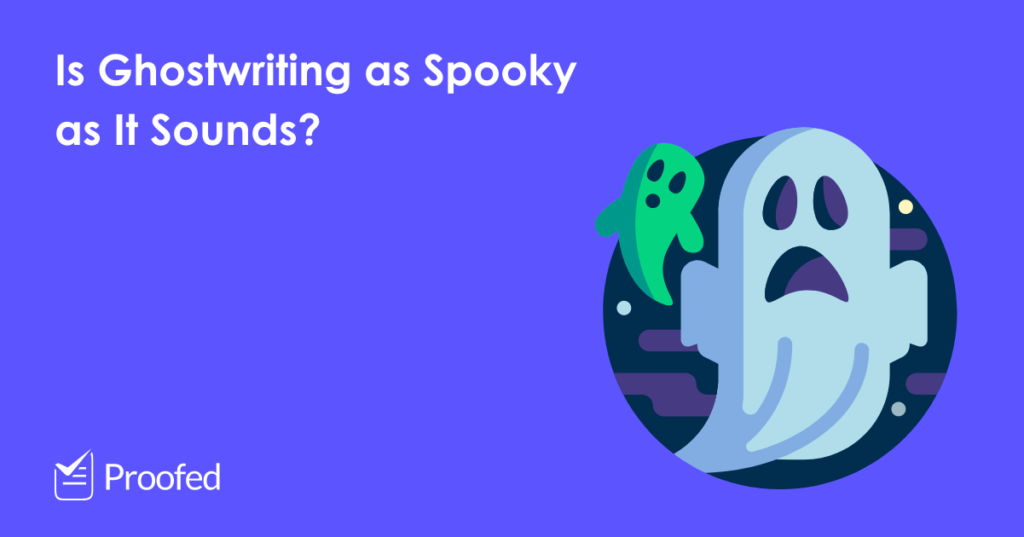On today, the spoooookiest of days, we thought we’d look at the most haunting form of writing: ghostwriting! Some of the most popular books in recent years have been written by ‘ghost’ writers. But who are these literary spirits? And what does ghostwriting involve? Let’s take a (spooky) look.
What Is Ghostwriting?
Okay, confession time: ghostwriting is not as spooky as it sounds. It has nothing to do with spirits. Nor does it involve any form of literary séance.
In reality, a ghostwriter is a person hired to write something for someone else. The writer (sometimes just referred to as ‘the ghost’) is paid a fee, and the person who hires them puts their own name on the writing.
The ‘ghost’ in ‘ghostwriting’ then, refers to this secret, uncredited author. And while this might not sound scary enough for Halloween, not getting credited for your work would be a truly horrific notion for many writers!
What Does Ghostwriting Involve?
What ghostwriting involves can vary depending on the client’s needs. Sometimes, the ghostwriter will simply edit a rough draft of a text. Other times, they will be given a brief and have to write the entire thing.
It may also depend on what the ‘ghost’ has been hired to write. When most people think of ghostwriting, they probably think of books, especially autobiographies and memoirs. But it can include any text where the writer is not the credited author, including journalism, songs, and scripts.
In all cases, though, a ghostwriter will try to write from the client’s point of view (e.g. in a ghostwritten autobiography) or to replicate their style or voice (e.g. in a speech script or an article for a magazine).
Find this useful?
Subscribe to our newsletter and get writing tips from our editors straight to your inbox.

(Image: SlimVirgin/wikipedia)
Why Do People Use Ghostwriters?
For aspiring writers, the idea of getting someone else to write for you may seem strange. But the three main reasons that people hire ghostwriters are:
- A publisher wants a professional to assist an inexperienced author.
- The credited author is not interested in writing something themselves.
- The credited author is too busy to write something.
With a celebrity autobiography, for instance, the ‘author’ may not have the time or writing skills required to write it themselves. In this case, the publisher would hire a ghostwriter to interview the ‘author’. The ghost would then write up their research in the voice of the credited author.
But it’s not just amateur writers who hire ghostwriters! K. A. Applegate, for example, is the famous author of the Animorphs series of children’s books. And in order to publish new titles regularly, Applegate hired ghostwriters to work on many of the books in the series. Typically, this would involve Applegate writing an outline and doing the final edits. But the bulk of the first draft would be written by a ghostwriter based on the outline.
Most authors are more secretive than K. A. Applegate about working with ghostwriters. But it is a common practice in the publishing world, with authors such as Ian Fleming, R. L. Stine, and Robert Ludlum all rumoured to have works written by ghostwriters at one point or another.
Expert Editing Services
So, ghostwriting isn’t so spooky after all! But if it still sounds too paranormal for you, may we suggest our editing services instead? Our experts can help you polish every aspect of your writing. And if you’d like to try our proofreading service for free, upload a 500-word trial document today.



